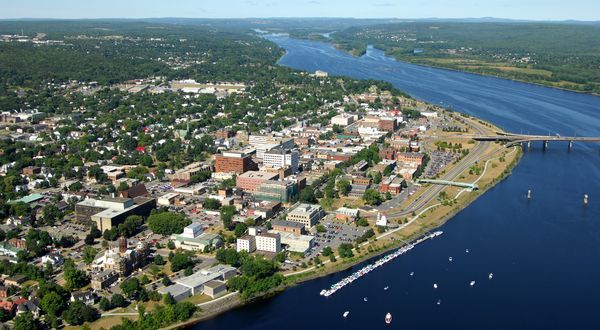Power outages, groundwater contamination, and telecommunications disruptions are the top three climate-change hazards identified by New Brunswick municipalities in a Community Climate Change Vulnerability Assessment (CCCVA) released today by WWF-Canada.
For the first time, communities in the St. John River watershed have come together to determine their vulnerabilities to climate change. The results have made clear that, already, these communities iare experiencing the harmful impacts of climate change, including an increase in extreme flooding, blizzards, ice, and wind storms.
The assessment was initiated in 2014 by WWF-Canada in partnership with the Western Valley Regional Service Commission, and completed with the communities of Woodstock, Hartland, and Florenceville-Bristol. The following vulnerabilities were identified:
- Community-level climate-change risks, including sewage overflows, flooding, damage to water-delivery lines, delayed emergency-response times, basement backups and damage to businesses.
- Community infrastructure and services most sensitive to the impacts of a changing climate.
- Options for adaptation, such as locating new water resources, building flood barriers, ensuring communities have backup power and community charging stations, and considering wildlife resources and habitat (including soils) in all land-use planning decisions.
The results from the assessment provide a a framework for adaptation actions. These actions include: locating new water sources in Woodstock, relocation of lagoon in Hartland, improving awareness of financial aid available, and greater community coordination.
Simon J. Mitchell, senior specialist, St. John River, WWF-Canada said, “Climate change will have increasingly harmful consequences for wildlife and biodiversity in the St. John River watershed. Aquatic ecosystems will change as water levels decrease and water temperatures rise during the summer months. Algae blooms are expected to increase and some species and ecosystems may be reduced or disappear altogether. By assessing vulnerabilities, risk and costs to communities, adaptations can be made to bolster the integrity of the watershed against climate change, thereby helping wildlife in the process.”
WWF-Canada and the Western Valley Regional Service Commission will remain involved in the development of the adaptation solutions plan. The Community Climate Change Vulnerability Assessment, can be accessed here.









